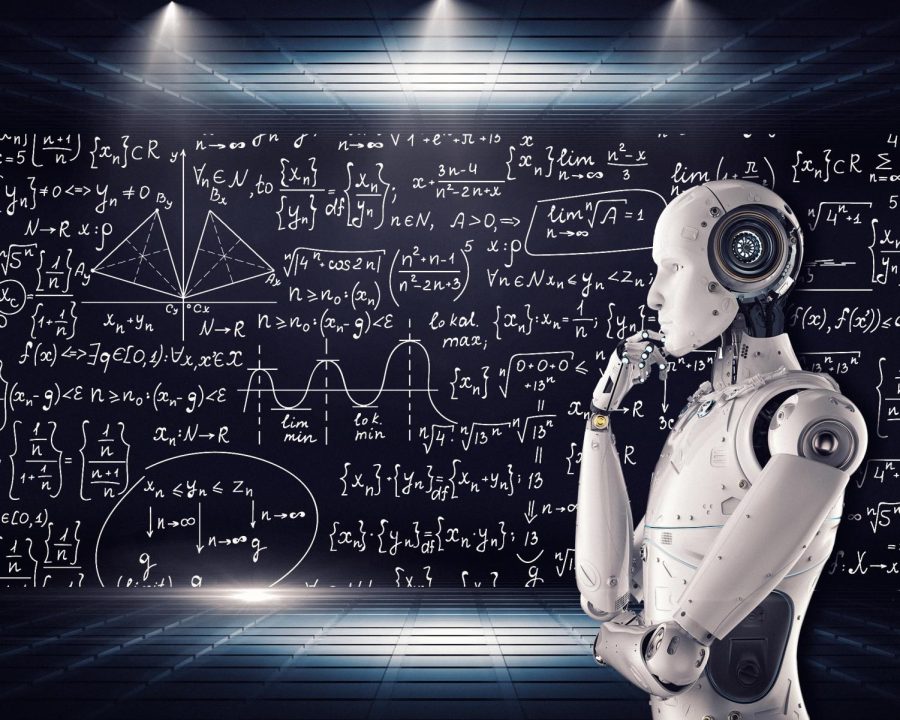AI and I: ChatGPT can write essays–even columns!–for students
Can you figure out who wrote the article?
February 27, 2023
ChatGPT has changed the game. Now, students have the temptation to allow AI to write essays for them. Teachers, fearing blatant plagiarism running rampant in the halls of Oshkosh North, seem resigned to the fact that they will pass a student who did not actually do the writing.
Can you, readers of The North Star, decipher between a human-created essay about AI writing apps and the AI-generated one? Test yourself below.
Essay A:
As you might know, ChatGPT (Chat Generative Pre-Trained Transformer) is a powerful chatbot capable of writing amazing prose, much faster than any human could. This show of powerful artificial intelligence is extremely impressive and could greatly benefit mankind by creating endless literature to fill libraries and entertain readers. Chatbots should continue to be developed, as their potential benefits far exceed their potential downsides.
One of the biggest problems with ChatGPT is that its abilities can be easily manipulated for malicious purposes, such as having it write essays for students or spreading false information on the internet. However, this is easily countered by the fact that it is possible for developers to create systems that detect content created by a chatbot. One example of this is a Ai-generated text classifier created by OpenAI (the same company that developed ChatGPT). Because of classifiers like this, the risk of chatbots being used for unintended purposes should greatly decrease over time, especially if the people creating chatbots are not doing it to be malicious.
One of the biggest benefits of AI text generators such as ChatGPT is that they could be the future of literature, mainly because of their ability to write amazing stories and essays in an incredibly short amount of time, potentially eliminating the need for human authors that have to work for months to write 200-400 pages of a novel. This idea seems scary at first, but it could be a revolutionary form of media that could cost far less to manage, allowing for seemingly infinite possibilities.
Finally, ChatGPT and other similar chatbots could be used to inform people on subjects that search engines like Google otherwise could not. For example, you may need information on a book that does not have an available summary. Chatbots are incredibly good at writing summaries and essays about books, making them perfect for a quick, free way to get a summary of a book before you buy it or check it out. Chatbots have an incredible amount of potential for utility in literature but also in modern entertainment. If chatbot technology is developed to an even greater extent, AI-generated movie scripts may be possible.
In conclusion, Chatbots should continue to be developed as their potential benefits far exceed their potential downsides. Many people may worry that they will take over the literature arts, but people also thought that photography would get rid of all art because it is perfect imagery, but the truth was far from that.
Essay B:
The widespread use of ChatGPT and other language models raises serious ethical and societal concerns. These AI systems have the ability to mimic human conversation and produce content that appears to be written by a real person. However, this ability is not without consequences.
One of the biggest concerns with the use of ChatGPT is the potential for it to be used for malicious purposes, such as spreading false information or propaganda. As these language models become more advanced and their output becomes increasingly difficult ti distinguish from that of a real person, it becomes easier for malicious individuals to use them to manipulate public opinion and spread misinformation. This can have serious consequences, particularly in the context of politics, where false information can be used to sway elections or incite violence.
ANother concern in the impact of AI language models on employment. As these systems become more advanced and are able to generate content faster and more efficiently than humans, there is a risk that they will replace human workers in a variety of industries, such as journalism and customer service. This could lead to widespread job losses, exacerbating existing economic inequality and exacerbating the already significant social and economic challenges facing many countries.
Furthermore, the use of ChatGPT and other language models raises questions about accountability. If a language model generates content that is false, harmful, or otherwise inappropriate, who is responsible for it? The developers of the model? The user who inputted the data? The platform that hosted the conversation? These questions highlight the need for clear guidelines and regulation around the use of AI language models to ensure that they are used in a responsible and ethical manner.
In conclusion, while the use of ChatGPT and other language models may offer some benefits, such as increased efficiency and the ability to generate large amount of content quickly, these benefits must be weighed against the serious ethical and societal concerns that they raise. The widespread use of these systems has the potential to have significant and far-reaching impacts on society, and it is essential that we proceed with caution and put in place measures to ensure that they are used in a responsible and ethical manner.


